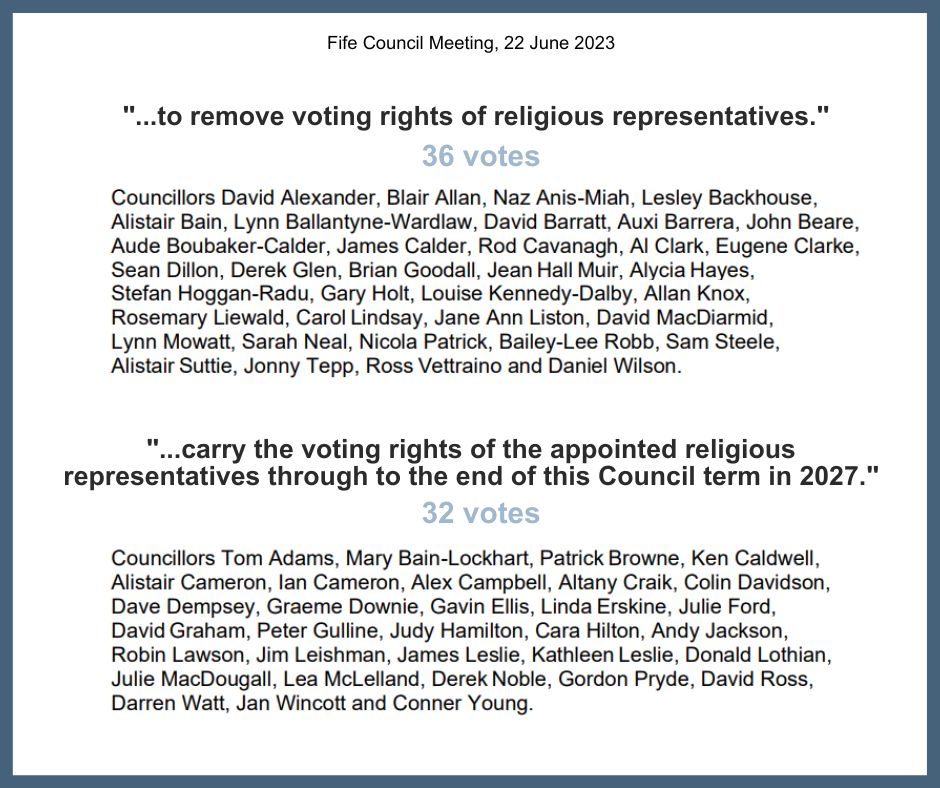VOTING RIGHTS: Message to councillors
This Thursday (31 August) councillors at Edinburgh City Council will vote on a Motion to remove the voting rights of Church Representatives on its Education, Children & Families Committee.
Archbishop Cushley will give a deputation to councillors on behalf of Catholics in the city, which is published below.
Thanks to everyone who has supported our campaign and contacted their councillor(s) asking them to vote against the motion.
Deputation - Archbishop Leo Cushley of St Andrews & Edinburgh
Thank you for this opportunity to address the Council.
Let me start my remarks with a little history.
The Education Scotland Act of 1872 made elementary education for all children between the age of 5 and 13 mandatory in Scotland.
In those days, Scotland was predominantly Presbyterian and, put briefly, that meant Catholics faced the choice of either sending their children to effectively Protestant schools, or educating them in their own schools.
So, they set up their own schools and, poor as they were, collected money to build and staff them.
The pennies of the poor built and paid for those schools, and they did fairly well, but they couldn’t match the state’s resources.
Today, in the City of Edinburgh, there are 15 Catholic primary schools and three Catholic high schools. They are open to everyone who wishes to use them.
Catholic schools began to lag behind those of the state sector.
And since Catholics were paying taxes for schools they didn’t use, this started to look like an inconsistency, even an injustice.
In 1890, school fees were abolished in state schools, but the Catholics kept paying for their own schools.
The Education Scotland Act of 1918 changed all that, by inviting Catholic schools into the state system.
This was described at the time by the Secretary of State for Scotland, a Protestant, as an act of social justice.
Today, in the City of Edinburgh, there are 15 Catholic primary schools and three Catholic high schools.
They are open to everyone who wishes to use them.
If we are a diverse and inclusive society, that must mean space for faith schools, be they Episcopalian, Presbyterian or Catholic, to say nothing of other faiths.
They are appreciated and treasured for what they are, and for the way they look after and promote the good of young people, no matter their faith.
This may explain why 20% of the population in Scotland uses Catholic schools, while Catholics are about 15% of the population.
Common Good
Our schools continue to be a significant part of our identity, and of our contribution to the common good.
Why all the history? Because, Councillors, Catholic schools in Scotland are a part of the heritage of the Catholic community here, and they were entrusted in 1918 to the state, presently represented by you.

Having entrusted this estate to you, for us not to have an active voice in council in matters touching upon Catholic schools makes no sense to us, unless there is another agenda at hand, such as one that is inimical to faith, be it in schools or elsewhere in the public square.
If we are a diverse and inclusive society, that must mean space for faith schools, be they Episcopalian, Presbyterian or Catholic, to say nothing of other faiths.
That Church representatives have had the right to vote in council until now has remained unremarked and unremarkable for many years, because it is an expression of democracy.
It is only right and just that we retain, not a veto, not a special voice, not special treatment, but simply an active voice in council, over the governance of a part of our heritage that is presently in your care.
I would also ask, has everyone with a vote in government been elected? If we look to the House of Lords, we find 781 people all unelected, and all but one of the parties on this Council has members there.
If you wish to take away our vote today, perhaps your colleagues in the Lords should resign too. Perhaps those sitting in Holyrood, thanks to the list system, would like to do the same.
My point is that our democracy has found various solutions in its search for participative government.
And I believe the Church reps’ vote is an example of that, and a good one.
Ultimately, however, for the people I represent, this is a question of trust placed in your hands by the Catholics of this city, and I don’t believe the presence or voting of Church representatives in council has given any motive for concern that I am aware of.
Our schools have been entrusted to you, by us, for the benefit of our portion of the community.
It is only right and just that we retain, not a veto, not a special voice, not special treatment, but simply an active voice in council, over the governance of a part of our heritage that is presently in your care.
